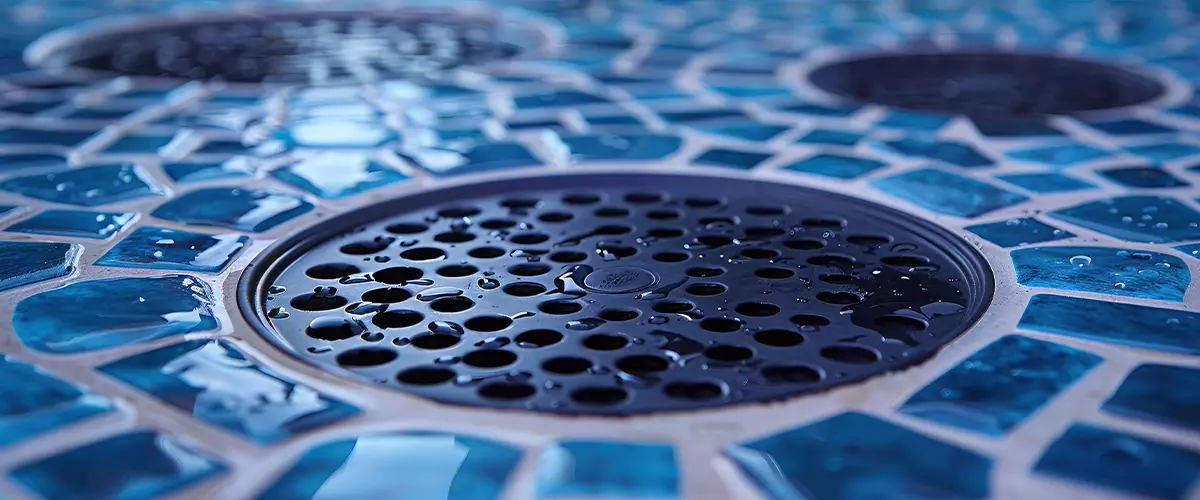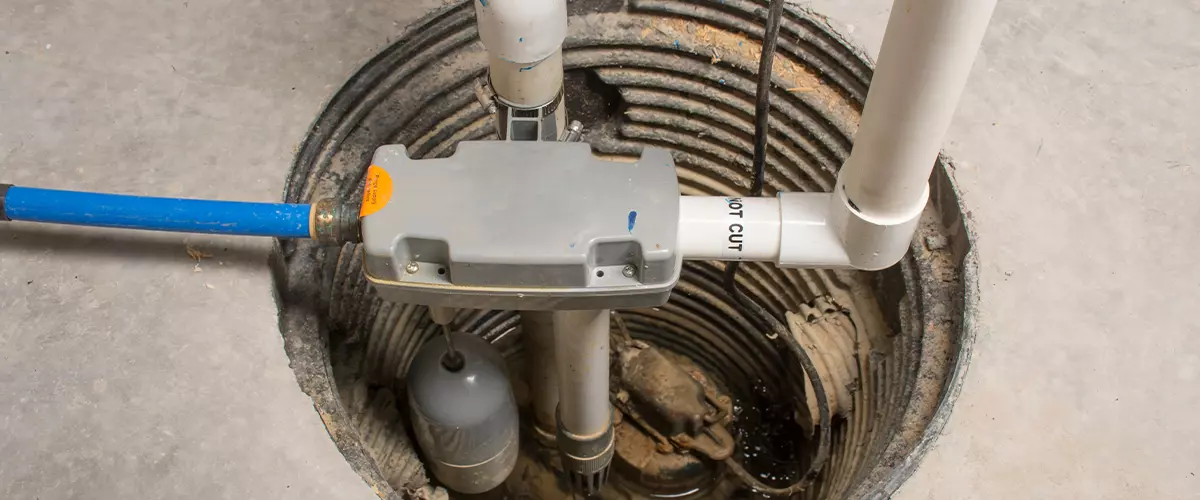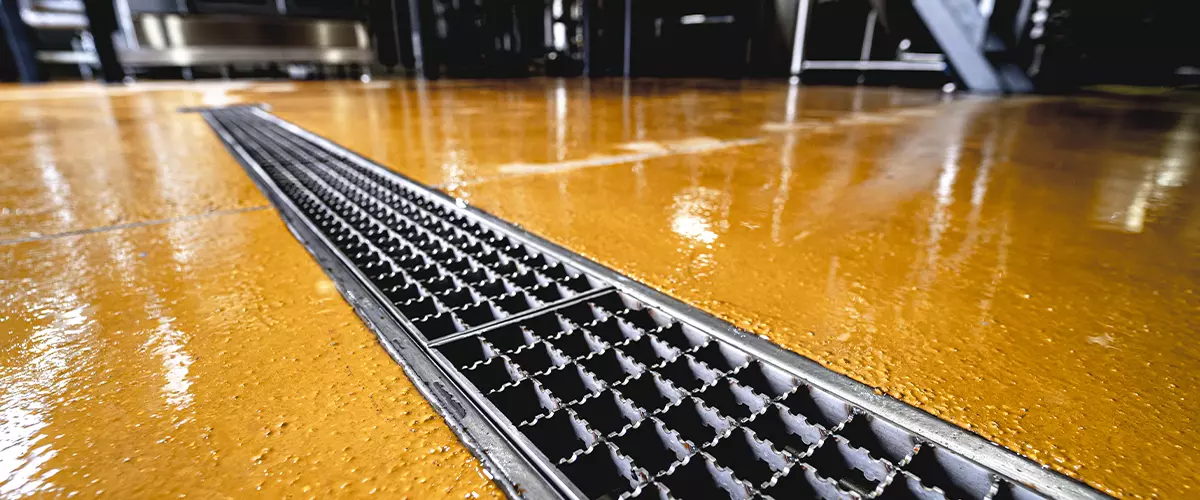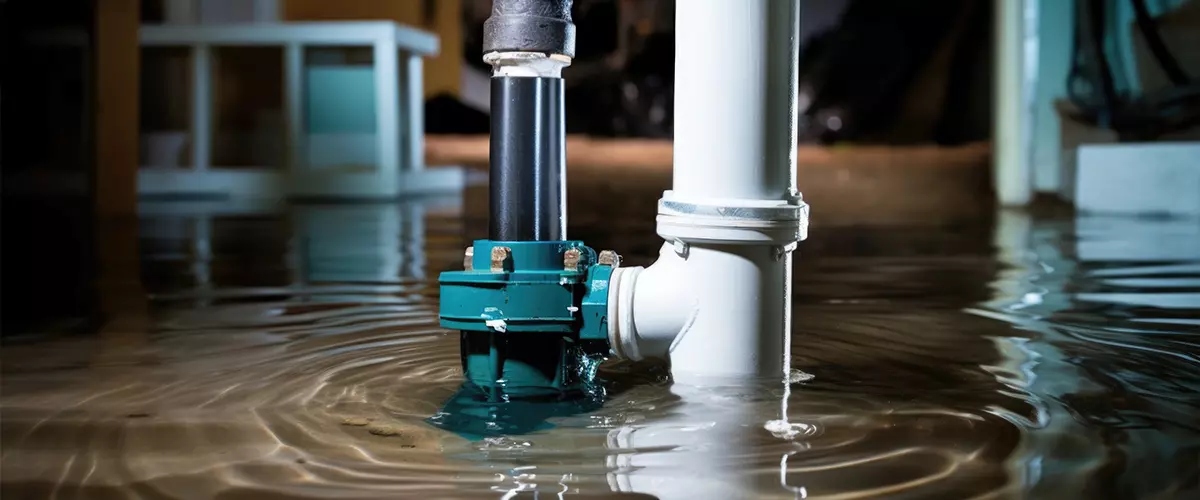6 Types of Basement Floor Drains & Drainage Systems Guide
If you have a basement, you know how crucial it is to keep it dry and free from water damage. One of the essential components in achieving this is the basement floor drain. In this post, we’ll explore the different types of basement floor drains, helping you find the perfect fit for your needs. Let’s get started!

What Are Basement Floor Drains and Why Do They Matter?
Basement floor drains are plumbing fixtures designed to remove unwanted water from the lowest point of your basement floor. They’re typically connected to a drainpipe that leads to either a sump pit or the main sewer line, depending on your home’s drainage setup.
Most drains feature a metal grate that prevents debris from entering and a P-trap beneath it to block sewer gases from coming back up. This simple system helps protect your basement from excess water caused by leaks, condensation, or heavy rain.
Even if your home already has an exterior drainage system, a basement floor drain adds an extra layer of defense. It helps prevent water damage, mold growth, and foundation issues by ensuring water is quickly directed away. Whether installed during construction or added later, this small but essential feature plays a big role in keeping your basement dry and safe.
Traditional Floor Drains
These are the most common type of floor drains you’ll find in basements. They are simple and straightforward. Water flows directly into the drain and then gets carried away to the sewer or septic system. They’re great for general use and handle typical basement water issues pretty well.
French Drains
A French drain, also known as a weeping tile, is a bit different. It’s a trench filled with gravel or rock that has a perforated pipe at the bottom. The pipe helps to redirect surface water and groundwater away from your basement. These drains are perfect if you have a lot of groundwater or if your basement tends to get very wet.
Sump Pumps
Sump pumps aren’t exactly a floor drain, but they work hand in hand with your drainage system. They sit in a sump pit (a hole in your basement floor) and pump out water that collects in the pit. If your basement is prone to flooding or heavy water accumulation, a sump pump is a lifesaver.
Channel Drains
Channel drains are long, narrow drains that are great for directing water away from larger areas. They’re often used along the edges of basement floors to catch water and funnel it into the main drainage system. They’re ideal if you have a wide area that gets wet.
Backwater Valves
A backwater valve is a special type of drain that prevents water from flowing back into your basement. This is super handy if you live in an area that’s prone to heavy rain or flooding. It ensures that water only flows out, not back in.
Combination Drains
Sometimes, you might need a mix of these solutions. Combination drains use elements of different types to give you the best protection. For example, you might have a traditional floor drain combined with a sump pump and a backwater valve for maximum protection.
How to Choose the Right Drain
Choosing the right drain for your basement depends on your specific needs:
- Do you get a lot of groundwater? A French drain or sump pump might be your best bet.
- Worried about water flowing back in? Look into a backwater valve.
- Need to cover a large area? Channel drains can do the trick.
Maintenance Tips
No matter which type of drain you choose, keeping it clean and well-maintained is crucial to ensure it functions properly and keeps your basement dry. Here are some tips to help you maintain your basement floor drain:
- Regular Inspections: Periodically inspect your drain for any signs of clogging or damage. Look for debris, dirt, or any objects that might obstruct the flow of water.
- Clear Debris: Remove any debris or dirt that has accumulated around the drain. This includes leaves, hair, and other particles that can cause blockages over time.
- Clean the Grate: If your drain has a grate or cover, make sure it is clean and free of obstructions. A clean grate allows water to flow freely into the drain.
- Flush the Drain: Every few months, flush the drain with hot water to help clear out any minor clogs and maintain a smooth flow. You can also use a mixture of baking soda and vinegar for a natural cleaning solution.
- Check the Trap: The drain trap (U-shaped pipe) can sometimes get clogged. Make sure it’s clear and functioning properly to prevent sewer gases from entering your basement.
- Test the Sump Pump: If you have a sump pump, test it regularly to ensure it’s working correctly. Pour a bucket of water into the sump pit to see if the pump activates and drains the water.
- Inspect Backwater Valves: If your system includes a backwater valve, check it regularly to ensure it is functioning properly. These valves are essential for preventing water from flowing back into your basement.
- Professional Inspections: Consider having a professional plumber inspect your drainage system annually. They can identify potential issues and perform any necessary maintenance that might be beyond your DIY capabilities.
- Address Issues Promptly: If you notice any signs of trouble, such as slow draining or unusual odors, address them immediately. Ignoring small issues can lead to bigger, more costly problems down the road.
FAQ About Basement Floor Drain Types
What is the best type of floor drain for a basement?
The best type depends on your needs. Traditional drains are common, French drains are great for groundwater, and sump pumps are essential for heavy flooding.
How often should I clean my basement floor drain?
You should inspect and clean your basement floor drain every few months to prevent clogs and ensure proper function.
What should I do if my basement floor drain is clogged?
First, try to clear the blockage using hot water or a mixture of baking soda and vinegar. If that doesn’t work, you may need to use a drain snake or call a professional plumber.
Can I install a basement floor drain myself?
While some drains can be installed by a handy homeowner, it’s often best to hire a professional to ensure proper installation and avoid potential issues.
What maintenance does a sump pump require?
Regularly check the sump pump to ensure it’s functioning. Test it by pouring water into the sump pit and clean the pump and pit annually to prevent malfunctions.
Make The Right Choice For Your Home
Whether you need a traditional floor drain, a French drain for groundwater issues, or a sump pump for heavy flooding, there’s a solution for every basement. Keeping your basement dry will save you a lot of hassle and prevent costly water damage in the long run.
If you’re unsure which drain is best for your basement or need professional basement remodeling, Gigi Homes & Construction is here to help. Our team of experts can provide personalized advice and high-quality installation services to ensure your basement stays dry and secure. Don’t leave it to chance – reach out to Gigi Homes & Construction today for a consultation at (703) 675-7574.
